Glass
 for violence including some bloody images, thematic elements, and language.
for violence including some bloody images, thematic elements, and language.
Reviewed by: Francisco Gomez Jr.
CONTRIBUTOR
| Moral Rating: | Offensive |
| Moviemaking Quality: |
|
| Primary Audience: | • Adults • Young-Adults |
| Genre: | Sci-Fi Superhero Mystery Thriller Sequel IMAX |
| Length: | 2 hr. 9 min. |
| Year of Release: | 2019 |
| USA Release: |
January 18, 2019 (wide—3,500+ theaters) DVD: April 16, 2019 |
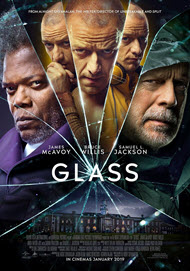




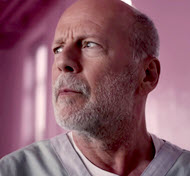

Believe in yourself or believe in God?
Sociopaths
Mass murderer
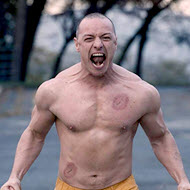
Who is SATAN, the enemy of God and all people? Answer
Is Satan A REAL PERSON that influences our world today? Is he affecting you? Answer
SATAN’S STRATEGY—What is one of Satan’s most successful strategies in dealing with followers of Christ? Answer

What is SIN AND WICKEDNESS? Is it just “bad people” that are sinners, or are YOU a sinner? Answer
Are you good enough to get to Heaven? Answer
How good is good enough? Answer
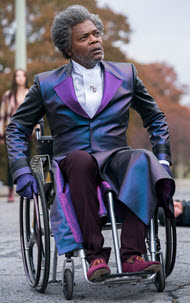
Disease: Type I osteogenesis imperfecta
Why does God allow innocent people to suffer? Answer
What about the issue of suffering? Doesn’t this prove that there is no God and that we are on our own? Answer
Does God feel our pain? Answer
ORIGIN OF BAD—How did bad things come about? Answer
Did God make the world the way it is now? What kind of world would you create? Answer

Dissociative identity disorder
Dangers of modern secular psychiatry based on atheism, Evolutionism, and Secular Humanism—ignoring the reality of God and sin
Evolution or Creation: What difference does it make? Answer
What is Secular Humanism? Answer
| Featuring |
|---|
|
James McAvoy … Kevin Wendell Crumb … The Horde / The Beast / Jade (a teenage girl), Orwell (an introverted man), Barry (the dominant personality), Patricia (an orderly, polite woman), Hedwig (a 9-year-old boy), Mary Reynolds, Dennis (a pervert), Norma, B.T, Mr. Pritchard, Jelin, and Samuel Bruce Willis … David Dunn / The Overseer Samuel L. Jackson … Elijah Price / Mr. Glass Sarah Paulson … Dr. Ellie Staple, a psychiatrist specializing in delusions of grandeur Anya Taylor-Joy … Casey Cooke—a young girl who was kidnapped by one of Kevin’s personalities as a potential sacrifice to “The Beast” and survived Luke Kirby … Pierce Spencer Treat Clark … Joseph Dunn—David’s son See all » |
| Director |
|
M. Night Shyamalan |
| Producer |
|
Jason Blum Blumhouse Productions M. Night Shyamalan Blinding Edge Pictures See all » |
| Distributor |
“Belief in Oneself is Contagious”
Prequels:
• “Unbreakable” (2000)
• “Split” (2016)
“Glass” is M. Night Shyamalan’s third film within a make-shift trilogy popularly referred to as Eastrail 177. The film continues the story thread set by “Unbreakable” and “Split.”
Kevin (James McAvoy) and David (Bruce Willis) are captured by Dr. Staple (Sarah Paulson). The pair are taken into a psychiatric ward where Elijah Prince (Samuel L. Jackson)—who refers to himself as Mr. Glass—is being held under heavy sedation due to his extreme intelligence.
Dr. Staple is a psychiatrist that specializes in delusions of grandeur. Her job is to convince the trio that their actions and perception of abilities is misconstrued due to mental illness, and that they need to face their trauma rather than caving to their delusions as a coping mechanism. That is as much as I can say about the plot, since the film—in classic Shyamalan style—is filled with plot twists and subversion of expectations.
Let’s briefly discuss moviemaking quality before we get into content for possible concern.
Shyamalan’s writing has long been his greatest strength and biggest weakness. When he has a clear direction, his writing is superlative, but he has recently lacked his focused cohesion. However, it is rare to see both sides of his writing in one film. Shyamalan introduces many fascinating themes and attempts to further deconstruct and satirize the superhero genre—a theme that has been popular in a film market completely saturated by it—but often his execution of the themes is rather dull. Rather than exploring the narrative through the characters and their actions, he often has the characters just sit around and talk about it. The film’s pacing is very slow as a consequence.
The dialog is not bad, and is often interesting, if you pay attention. However, for a smaller scaled film, the tone is scattered. I did not know if it was a psychological thriller, mystery, horror, or comedy. His attempt to include a little of all those genres—as he did in “Split”—fails this time around. There are simply so many characters and threads, that adding the multiple genre elements results in a convoluted, and often boring film.
The inconsistent tone throws the audience through a loop early on, and I did not know how to feel by the end. This muddles the interesting themes Shyamalan wants to bring forward, because there is no clear emotional relation established between the film and the audience.
Its narrative roller coaster is a shame, because Mike Gioulakis’ cinematography is superb, as is typical. West Thordson provides a fantastic score to go along with the interesting imagery. The acting—particularly James McAvoy—is often fantastic. However, they are often stuck trying to bring life to a story that moves back and forth from good to bad. I suspect the efforts from these individuals that bring moments of real highs to the film will be enough for some audiences to ignore the film’s flaws.
Personally, the film’s highs and lows equaled to being an average film, in terms of moviemaking quality.
Content of Concern
Refreshingly, the film’s content does not glorify its violence, and its language is not as prolific as other films of its same rating. However, there is content to take under consideration—especially for those who are sensitive to violence.
Violence: Heavy. This is the film’s biggest cause for concern. There are multiple deaths. The most gruesome are implied, and violence is often not shown explicitly, to comply with its MPA rating. A man is squeezed to death, and then bludgeoned on the ground. Another man has his throat slit. Teenage girls are held captive and chained at the beginning.
Language/Profanity: Strong language is not prolific, but it uses heavy words when it does so. Instances of the s-word warrants, a “Heavy” rating from me. There are two instances of the Lord’s name used in vain.
Drugs/Alcohol: Other than Mr. Glass being sedated medically, and a couple of dinner shots where alcoholic beverages are barely visible, there are no instances of actual use.
Nudity: Mild. Kevin takes his shirt of when he is about to turn into the “beast.”
Spiritual Lessons
The central theme of the film is “belief in oneself.” The characters struggle with their identity. Wondering if their abilities are real or a delusion caused by trauma. They are being told by Dr. Staple and others, what they are, and it confuses what they should do and who they should be. I think everyday people are confronted with this issue. Especially younger people. The world often tells us how we should act, dress, and what we should believe. Social media often makes young—and even older people—feel more alone. Everyone posts their best image, and tries to eliminate the negative visible aspects of their lives.
Just like our own version of delusions of grandeur. Teenage girls and boys struggle with their self-image, more than ever, because they cannot live up to the photo manipulated images of models on social media. Where should we find our sense of identity? We must view our life through the eyes of our Creator, and not through secular ideals.
“I praise you because I am fearfully and wonderfully made; your works are wonderful, I know that full well.” —Psalm 139:14
Scripture makes it clear that God created us, and that being made in His image gives us worth. However, Satan and sin distort this image. Violence against our neighbor, sexual impurity, and overall bad relationships degrade the significance with which God made us. This is why the Gospel is so important. The only eternally fulfilling identity is within Christ. He restores our relationship with God, and with others—which is the basis for the two greatest commandments.
“‘Teacher, which is the greatest commandment in the Law?”
Jesus replied: “‘Love the Lord your God with all your heart and with all your soul and with all your mind.’ This is the first and greatest commandment. And the second is like it: ‘Love your neighbor as yourself’.” —Matthew 22:36-39
If we believe and proclaim Jesus as our Lord and Savior, then Scripture tells us we have a new eternally fulfilling identity in him.
“Therefore, if anyone is in Christ, the new creation has come: The old has gone, the new is here!” —2 Corinthians 5:17
We must shed our worldly conceptions of identity and embrace our worth in Christ, and share the Gospel with others so that they may participate in that joy with us! If you would like to know more about starting a relationship with Jesus Christ click here.
Summary
M. Night Shyamalan’s direction brings brilliant moments to the film, but it most often contains lulls. However, the film is heightened through its strong acting and technical performances. It contains negative content that should be taken into consideration if you are thinking of watching. As always,
“Above all else, guard your heart, for everything you do flows from it.” —Proverbs 4:23
- Violence: Heavy
- Profane language: Moderate— • “J*sus” • “G*d-d*mn”
- Vulgar/Crude language: Heavy— • “p*ssy” • “I got a little hard-on” • “You're not one of those ‘Hello Kitty’ pervs?” • s-words (2)—including “That’s some buttery sh*t!” • “What a douche!” • “a**” (3) • b*stard
- Nudity: Mild
- Sex: None
- Occult: None
- Ever since Adam’s first sin, humans are born spiritually DEAD, in rebellion against God and a continual slave to sin. If you have not been reborn into the Kingdom of God, you are in the kingdom of Satan, the Great Deceiver.
- One of the world’s biggest and most common sins is SELF-CENTERED EGOTISM.
- HUMILITY before God is vitally important. Humility opens your eyes. Don’t think of yourself more highly than you ought (Romans 12:3). Pride comes before a fall (1 Timothy 3:6). What does God love, and what does He hate? (a humble repentant heart and a prideful sinful one) / If we suffocate pride, we will starve every other sin of its oxygen.
- For a Christian, self-confidence is who we are in Christ; He is our identity, and God’s Holy Spirit dwells in us. Believe in what GOD can do THROUGH YOU. Devote your life to serving God faithfully, pursuing holiness, righteousness, being one who truly loves (an action, not an emotion)—doing good works.
- ALIGN YOURSELF WITH GOD’S VIEW—your heart, thoughts and actions.
- “Trust in the Lord with all your heart, and lean not on your own understanding; In all your ways acknowledge Him, and He shall direct your paths.” —Proverbs 3:5-6
- I must decrease, and He [Christ] must increase (John 3:30).
- Don’t be a hypocrite—one way on the outside, and far different on the inside—in reality, believing in yourself, not God.
See list of Relevant Issues—questions-and-answers.


Ever since “Signs” (2002), I’ve been a really big Shyamalan fan. His ability to craft a slow-burn thriller with richly complex characters and thematic issues definitely draw me in.
In my view, “Glass” (2019) is probably the best film of Shyamalan’s Eastrail 177 trilogy. I find it strange that this film was so hammered by critics, but hating on Shyamalan has become a popular thing (perhaps because of some of his other films like “The Happening” and “After Earth,” which weren’t very good at all). It could be, as the gentleman commenting above me implied, that people don’t have long attention spans, which is a sad symptom of our modern Internet and Facebook culture. I personally love the scenes that take their time and are loaded with thought-provoking moments.
First of all, the problematic material I’d like to highlight here in the film is one any potential viewer may want to be aware of, and it’s a similar issue that one of the prequels to this movie, “Split” (2017), also displayed. I loved the themes of “Split,” but there are scenes both in that film and “Glass” that can be difficult to watch, especially when one of the villainous personalities of James McAvoy’s character Kevin Wendell Crumb, the Beast, is shown just off screen to be cannibalizing a person. This is perhaps the most disturbing moment of the film, and it happens toward the end (it’s shown for only a second), so just something to be aware of. Violence in film tends to be what I’m most sensitive toward, and this is a particularly violent moment (there is a similar scene in “Split” that is arguably worse).
But aside from brief moments like that, it’s a very deep and profound film. I didn’t get the same applications that the commenter above me did from it. I don’t share the same political beliefs as the commenter above me either. Here’s what I got from the film:
This movie asks us to consider compassion and empathy for “the other,” rather than to attempt to suppress and control them. The former is the way of Jesus, and the latter is the way of the world. Dr. Staple’s use of the pink room isn’t meant as an emasculating exercise, but rather, as Britt Hayes notes in her positive review of the film, it’s meant to have a particular psychological effect on prisoners to keep them subordinate to their captors.
The same shade of pink has been used, Hayes notes, in correctional facilities before and has been shown to work its magic on inmates. It has nothing to do with gender (pink used to be thought of as a male color in Western culture before World War II), but rather is about control.
One character who operates as a compassionate foil to the villainous Dr. Ellie Staple is Casey Cooke (portrayed brilliantly by Anya Taylor-Joy), a character from Split (2017), one of the predecessors to this film, in which she was captured by James McAvoy’s character Kevin Wendell Crumb (who suffers from dissociative identity disorder) but then escaped.
In this film, however, she has compassion for him after she learns that he had been taken to Dr. Staple’s mental facility before his trial, since she knew he had been abused as a child by his mother, just as she had also been abused as a little girl by her uncle.
In fact, Kevin, David, and Elijah each have a corresponding character in the movie who care about them and genuinely believe them to be who they are: For Kevin, it’s Casey, a person who relates to the trauma he’s been through. For David, it’s his son, Joseph, who had always believed his dad to be a superhero, even when David didn’t. For Elijah, it’s his mother, who cared for him and respected his mind even when the world saw him as nothing more than the brittle bone disease he had since birth.
There are many lessons to be gleaned from this film, but one of them is kindness, which Paul lists in Galatians 5:22-23 as one of the fruits of the Spirit. In today’s world, we could use more kindness and less gaslighting. Truth is also thrown into question in the modern era, such as the attempts of powerful people to cover up truths too long hidden at the expense of the vulnerable. And Shyamalan’s film, while not intended as a “Christian” film, shows the power of the blacklight of truth: It reveals the secret deeds done in the shadows, both the ugly and the beautiful.
Moral rating: no opinion / Moviemaking quality: 5
Moral rating: Average / Moviemaking quality: 3½
PLEASE share your observations and insights to be posted here.
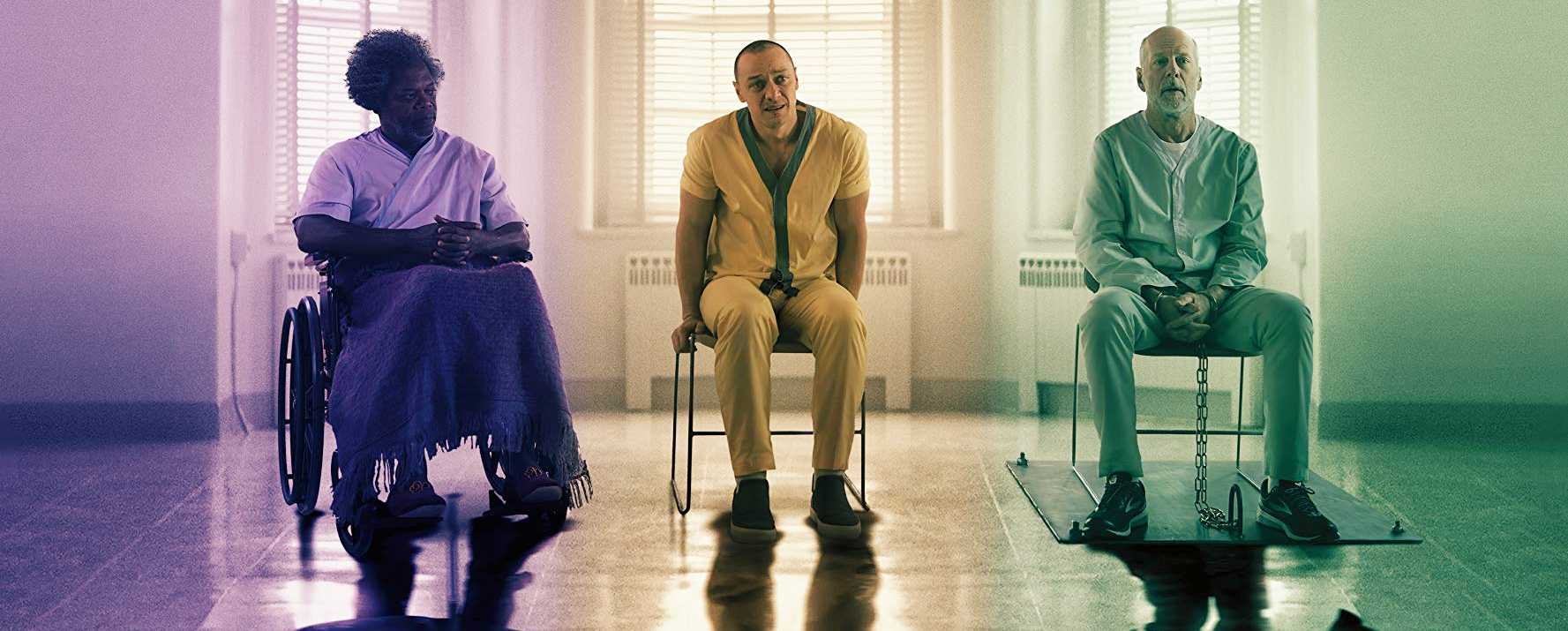


In the all-pink room with the woman psychiatrist made up all pink, she is so very concerned for her patients, not at all condescendingly telling them they’ve been mistaken in their beliefs all along. They trust that she genuinely cares for them, and they begin to doubt their own identity. I think this is a subtle commentary on the overreach of the #MeToo movement. It is not unlike the lecturing of liberal (especially female) politicians who publicly shame people of faith today.
Think of the Kavanaugh hearings or the persecution of Jack Phillips for example. We see many retract their beliefs and apologize for their biblical faith, assuring the world that they are now enlightened, now supporting everything from same-sex marriage to abortion. Yet, some people stand firm.
The movie is not a deconstruction of the super hero genre; it is a treatise on faithfulness. Shyamalan is genius in his presentation of this contemporary problem.
“Glass” could only be better without that single instance of taking the Lord’s name in vain.
My Ratings: Moral rating: Better than Average / Moviemaking quality: 4½